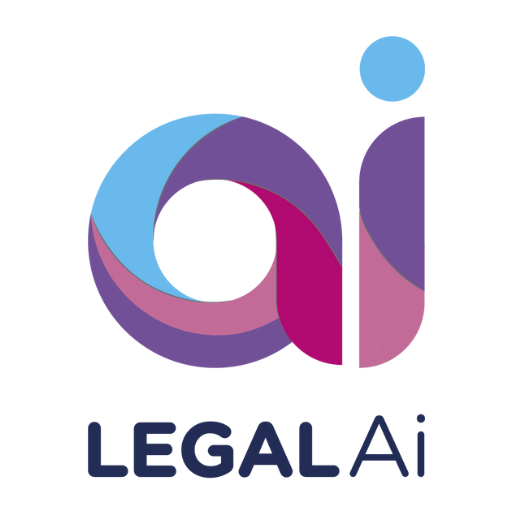The Learning Curve: Adopting AI Technology in Law Firms
Integrating AI technology into legal practices is now crucial for law firms aiming to stay competitive and meet client expectations. In this guide, we’ll take a look at the advantages AI can bring to your practice and how you start integrating it today. Advantages of AI tech for law firms AI tech offers a whole host of benefits for law firms, from increased efficiency and improved decision-making to gaining a competitive edge. By automating routine tasks and providing data-driven insights, AI allows legal professionals to focus on more complex and valuable work, improving their overall productivity and client satisfaction. Initial steps to AI adoption Follow these steps to seamlessly implement AI in your law firm. Assessing firm needs The first step in adopting AI technology is to assess your firm’s needs. You’ll need to identify specific areas where AI can be beneficial. This could include tasks like: Reviewing documents Emailing clients Analysing data Scheduling follow-up emails or meetings Pinpointing the areas that take the most time out of your day will help you understand where AI can make the biggest impact. Once you’ve settled on a few areas, creating clear goals and objectives for AI implementation is crucial. Whether your aim is to reduce operational costs, improve efficiency, or enhance client services, having a defined purpose will help to guide your AI adoption strategy. Choosing the right AI tools Once you have a clear understanding of what your firm needs, the next step is to find the right AI tools for you. There are numerous AI tools designed specifically for the legal sector, each with its unique features and capabilities. Evaluating these tools carefully is essential. Look for solutions that integrate smoothly with your existing systems and workflows. You might want to consider the following factors: Ease of use Testing and trial options Scalability Support Building a business case Building a strong business case is essential to gain stakeholder support for AI adoption. You’ll need to demonstrate the ROI by highlighting potential cost savings, efficiency gains, and competitive advantages. You can do this by showcasing the areas of improvement and finding a tool that will help you achieve this. For example, AI can automate repetitive tasks like document review. This not only saves your team countless hours but it can also reduce the risk of human errors. Showcasing these benefits will help convince decision-makers when it comes to the value of AI. Overcoming challenges in AI adoption Here are a few common challenges we see associated with AI adoption, and how you can overcome them. Technical challenges Integrating AI with existing systems and workflows can be tricky, but it doesn’t have to be. One of the main technical challenges is ensuring data accuracy and reliability. Poor data quality can significantly hinder AI performance. That’s why it’s important to clean and organise your data beforehand. Collaborate closely with your IT team, or external AI support team, to address any integration issues. They can help ensure that the AI tools work seamlessly with your current systems. Cultural and employee resistance Another big hurdle is cultural resistance. Naturally, there may be scepticism amongst staff. However, it’s important to address these concerns head-on and explain that the adoption of AI as a legal firm is beneficial for everyone. Explain that AI promotes a culture of innovation and continuous learning. AI is a tool designed to supplement human capabilities, not replace them. It’s also important that you demonstrate how AI can handle mundane tasks, allowing lawyers to focus on more strategic and satisfying work. Engaging staff early in the process and seeking their input can also reduce resistance. Training and development Training and development are also important when it comes to AI adoption. A lack of training is one of the biggest mistakes law firms often make, From day one, provide comprehensive training for staff on how to use AI tools effectively. This should include initial training sessions and ongoing support to help employees adapt. You should also aim to encourage continuous learning and ongoing development. As AI technology evolves, staying up-to-date with the latest advancements will ensure your team can fully leverage AI’s potential. Successful AI adoption stories According to a study by Thomson Reuters, many law firms are already using AI technology. From their survey of over 200 law firms: 64% of law firms already using AI-enhanced tech to assist with legal research 47% are using AI-led document review that catches errors legal teams might have missed manually 45% are using eDisclosure to gather digital evidence for litigation 38% are using document automation But what does this mean? These statistics help to demonstrate AI’s practical benefits in the world of law. Over half of law firms surveyed are already utilising AI daily, without resistance, but the potential for AI extends far beyond this. Benefits of mastering the learning curve Increased efficiency and productivity Of the 64% of law firms that are already using AI (Thomson Reuters), 77% of them reported increased efficiency and time-saving as a key benefit. By automating routine tasks and workflows, AI allows legal professionals to focus on higher-value work. This not only boosts productivity but also allows lawyers to dedicate more time to ‘more important’ strategic activities. Enhanced decision-making AI can also improve decision-making for law firms. AI tools can analyse large volumes of data quickly and accurately, uncovering patterns and trends that we might miss. This can be particularly valuable in legal research, case analysis, and strategic planning. By leveraging AI for these tasks, lawyers can make more informed decisions, reduce human errors, and improve case outcomes. Competitive advantage Law firms that adopt AI can also remain one step ahead of competitors. Clients increasingly expect quick, accurate, and cost-effective services, and AI can help meet these demands. Is your law firm AI-ready? Adopting AI technology is essential for law firms looking to stay competitive, boost productivity, and improve client satisfaction. Getting started might seem challenging
The Learning Curve: Adopting AI Technology in Law Firms Read More »









